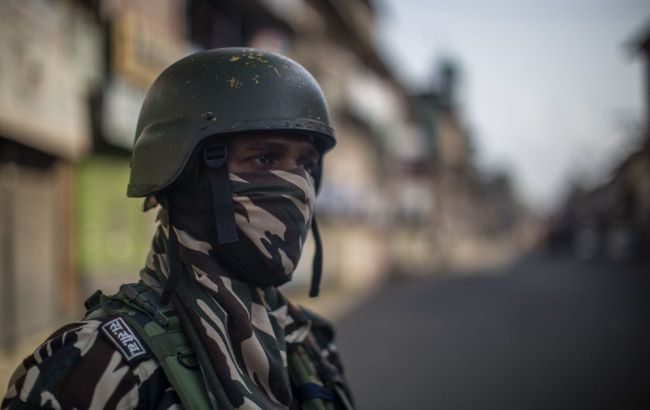World will stand aside: Expert assesses likelihood of war between India and Pakistan
 Photo: escalation between India and Pakistan could lead to war (Getty Images)
Photo: escalation between India and Pakistan could lead to war (Getty Images)
After the deaths of dozens of people in Kashmir, tensions between India and Pakistan have flared up once again. However, this time, global players are likely to stay on the sidelines, states historian and diplomat Roman Bezsmertnyi in a comment to RBC-Ukraine's YouTube channel.
"The issue of confrontation in the state of Kashmir is as deep as the history of relations between these two countries (India and Pakistan – ed.)," the expert explained. "Since 1947, the conflict there has periodically escalated and de-escalated, but it has never stopped."
Bezsmertnyi believes that the current situation between India and Pakistan has not yet spiraled out of control and does not yet indicate the inevitability of open war. According to him, the sides have so far exchanged sharp diplomatic statements and taken tough measures, including cutting off water supplies.
At the same time, the expert notes, there is mutual dependence between the countries: part of the water resources is controlled by Pakistan, and part by India, which creates a certain reciprocity in the conflict.
"Further escalation involving visas and other measures, in my view, could at most lead to another round of border clashes, which have occurred there periodically," he remarked.
Serious escalation of the situation
At the same time, the historian noted that this is the most serious escalation in Kashmir in the past four decades.
"It must be said that the situation escalated also because (Indian Prime Minister – ed.) Narendra Modi is known for his radically Hindu views, and the Bharatiya Janata Party, India’s national party, has now taken a very hardline stance. Could this turn into an open confrontation? It could, if no measures are taken now," the expert explained.
UN is 'paralyzed'
According to Bezsmertnyi, international security mechanisms, particularly the UN Security Council and General Assembly, are effectively paralyzed today, as even the death of 26 people in Kashmir is perceived by the world as a “traditional” part of the long-standing conflict between India and Pakistan.
"It’s very cruel, but that’s the way it is. And the paralysis of the security system makes it impossible to intervene and demand calm from both sides, to conduct investigations, and to punish the perpetrators. As a result, the situation is developing in a wave-like manner, with each wave growing stronger. That’s why I can’t say for certain whether it will escalate into a serious confrontation, because I see how everyone has stepped back from the situation and is pretending it’s just a bilateral issue," the expert emphasized.
At the same time, in the historian’s view, if the conflict "erupts" there, the wave will start to spread across all of Asia.
Are the US or China interested in the conflict?
Responding to a question about whether the US or China might be interested in escalating the conflict or supporting it, the expert said that these countries currently have no such interest.
"No, they’re not interested. For the simple reason that Trump’s United States has somewhat distanced itself from an ally like Pakistan. And in this situation, India is still searching for its place, and it doesn’t want China to get involved," the expert explained.
Bezsmertnyi believes this is another argument indicating that Islamabad and New Delhi have been left to handle the situation on their own.
"Because any move in Beijing, Washington, or even Moscow would lead to a completely misguided interpretation of what’s happening. And from my point of view, it now all depends on whether there’s enough common sense in Islamabad and New Delhi to make decisions that prevent the escalation of this standoff and stop it from turning into a war," he concluded.
Conflict between India and Pakistan
Recently, militants attacked tourists in the mountainous region of Indian-administered Kashmir, killing at least twenty-five people.
Ukraine reacted to this tragedy by condemning the violence. More details on the situation and Kyiv’s response can be found in the RBC-Ukraine material.
Yesterday, India announced its decision to withdraw from the historic Indus Waters Treaty, while Pakistan responded with threats of war.
All available information on the escalation and mutual restrictions between the two countries is covered in the RBC-Ukraine material.
Notably, today, April 25, a shootout occurred on the India-Pakistan border.

